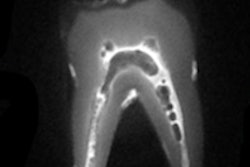The University of Maryland School of Dentistry has been awarded $16 million by the National Institute of Dental and Craniofacial Research (NIDCR) to fund the next five years of an ongoing study examining the root causes of chronic head and neck pain conditions.
The Orofacial Pain Prospective Evaluation and Risk Assessment (OPPERA) study, now in its fourth year, is deepening scientists' understanding of risk factors and genetic markers for conditions such as temporomandibular disorders (TMD), headaches, irritable bowel syndrome, low back pain, and chronic widespread pain.
The study of more than 6,000 adults in four states is aimed at finding new diagnostic tests and better treatments for chronic pain sufferers, the university noted in a press release.
According to NIDCR, OPPERA II is designed to build upon the findings of its preceding study, OPPERA I, which the agency funded with $17 million in 2008 for the pain research collaboration to identify the causes and point to possible cures for TMD.
The OPPERA II program will enroll 3,000 new participants and conduct follow-up assessments of them and of 3,200 adults previously studied in the OPPERA I program. The investigators will assess behaviors, psychological characteristics, genetic factors, and other biological mechanisms that contribute to the onset and persistence of common chronic pain conditions such as TMD, headaches, low back pain, abdominal pain, and widespread pain. Researchers will look for commonalities as well as unique risk factors and biological mechanisms among the pain types.
The researchers hope to identify risk factors and biological mechanisms that cause the pain conditions to transition from an initial acute state to a persistent chronic state. Most clinical pain conditions disappear with time, but certain individuals are susceptible to developing chronic pain states.
The researchers also intend to identify the underlying biological processes that permit the coexpression of common chronic pain conditions that overlap with TMD.



















